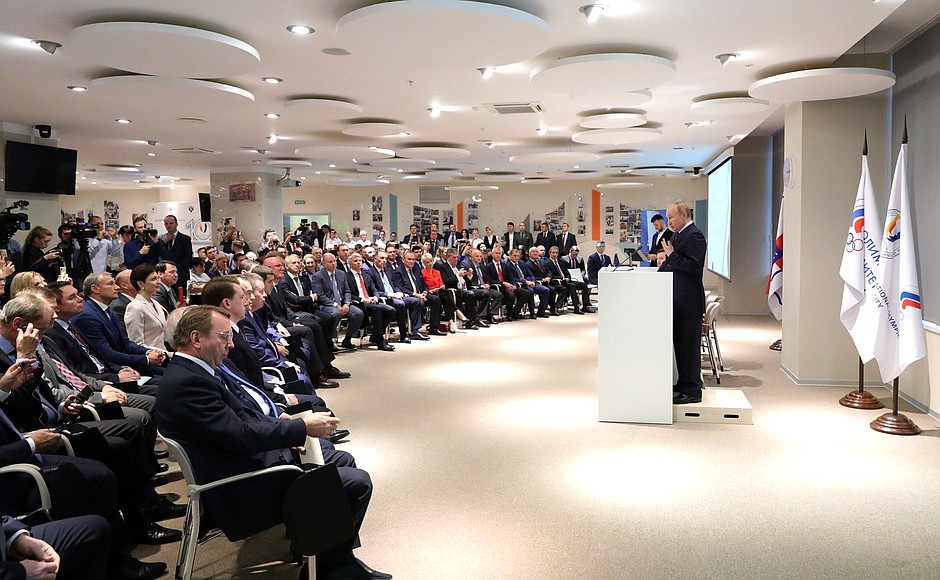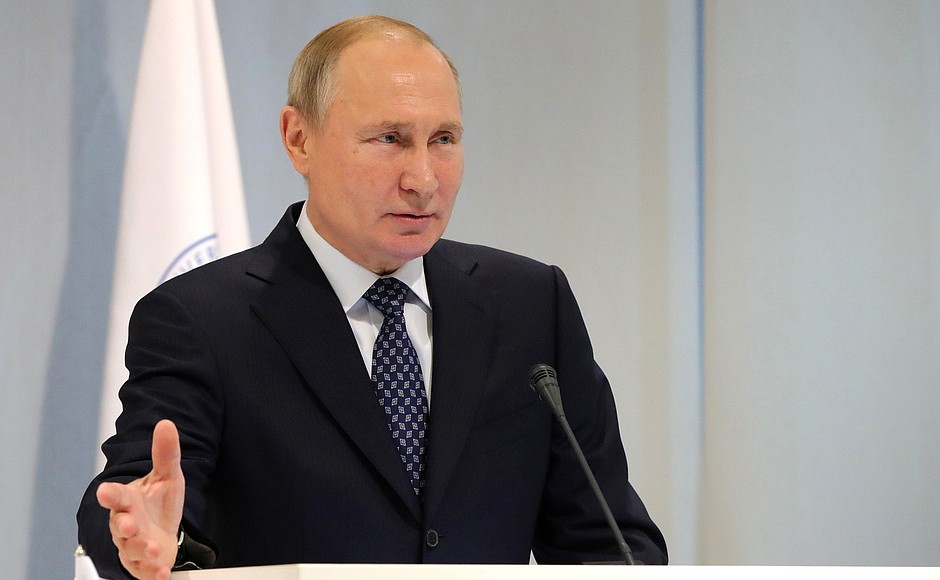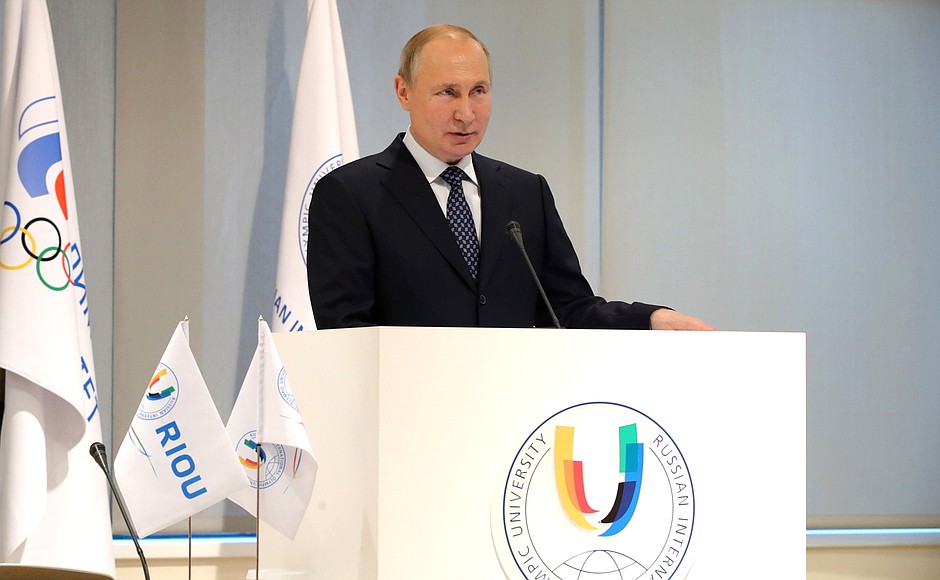President of Russia Vladimir Putin: Friends,
Today is a good day and a nice occasion: we are celebrating the 10th anniversary of a remarkable university, the Russian International Olympic University. It is an important and significant event, at least for Russia, and a noble mission aimed at uniting athletes, academicians, officials, civil society figures and businesspeople, representing not just Russia but other countries as well. I congratulate you with all my heart: all the staff, students and alumni, on the university’s first milestone anniversary. The university has become a good, large international platform as well as an advanced education and research centre that has gained respect in the Olympic family. Today it is the only university in the world that has the Olympic rings on its diploma.
See also
Today we had a tour here and saw how it works – buildings, lecture halls and equipment – everything meets the highest modern standards. Most important is that the curriculum has cutting-edge content. Over 100 Olympic, world and European champions representing almost all the Russian regions have already graduated from this university. The rector has just said that only one region is missing: Chukotka. But we will get it, too. Representatives of 63 countries work and study here, and that is quite a large number.
Much has been done to make Russian education more competitive. For example, our university – your university – has come second in the European and tenth in the global international rankings of postgraduate sport management programmes for the past three years, as the rector has also told me.
It is important that, together with the Russian Olympians Foundation, you focus on outstanding Russian athletes and literally help them build their future and find a new path in life so that after their sporting careers are over they can feel confident, move forward and be victorious.
Friends,
In order to achieve our national goals, increase the life expectancy and improve the quality of our people’s life, we must do more to develop mass sports. Moreover, interest in fitness and sports is constantly growing in Russia. I have just had a meeting with Paralympians, and I had to tell them, just as I have to tell you, that it is true that the situation around fitness and sports has changed significantly in Russia. But we still have room to grow, because some neighbouring countries have more athletes per 1,000 people than we do. This means that we have done a lot, but we must go further.
We need educated managers who can work to develop mass sports in big cities, towns and villages. They must always have ways to advance, to upgrade their knowledge and skills and acquire new, up-to-date skills. This is why your further training programme for sport managers must satisfy today’s needs and integrate scientific and technological achievements as well as the experience of the leading managers and coaches, including our foreign colleagues.
Such programmes should be constantly expanding, especially since effective professionals are needed at government agencies of all levels as well as businesses.
It has already become beneficial for the state and private businesses to put their efforts into both professional and recreational sports. The public-private partnership works well in this sphere. Your university is the best example. Mr Potanin, thank you very much for supporting this idea and this excellent institution.
I would like to repeat that I regard training managers as one of the most important tasks for promoting mass sports, and I am sure that you will do this brilliantly.
Once again, congratulations to the staff on your anniversary and best regards to all of you. Thank you very much.


